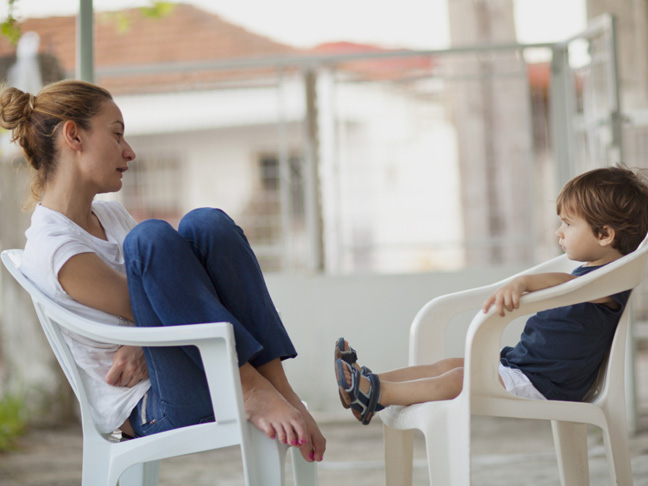Our home was burglarized a few years ago. It was a beautiful sunny day, the kind that Southern California is known for. We left the house for about an hour to run a few errands as a family. Although we always set our alarm, we didn’t that day. Perhaps it was the nice weather calling us outside. Maybe it was the little kids urging us to get out and see the world. Whatever the reason, we didn’t take the time to run back into the kitchen to close the window that was left open a crack so that the alarm would set.
One hour later we returned to a mess. The house was turned upside down and countless things were taken. Some of those things were replaceable but others were not. And nothing could have prepared me to see my children’s bedrooms in a state of disarray, including video monitors torn apart and toys and clothes thrown all around the room. The worst part, however, was looking my two very young children in the eyes and telling them what happened.
We’ve all healed over time, but my kids still don’t feel 100 percent safe in our cozy little beach town. That’s a shame, really, because childhood shouldn’t be wrapped in fear — which is why it’s hard to talk to our kids about the scary things that can (and do) happen in this world, from school shootings to terrorist attacks to natural disasters and beyond.
But here’s the thing: Avoiding these topics doesn’t work. If you don’t talk to your kids, someone else will, and it’s far better that they get the message from you. I faced yet another tough conversation with my kids, recently, when I had to tell them that our neighboring school district shut down completely due to bomb threats. The thought of having that conversation made me want to cry and hide somewhere far, far away from the media. But I sat them down and told them because I wanted them to hear it from me.
How to talk to your kids about the scary stuff? These tips should help you get started:
1. Confront your own feelings first. There’s no rule that you have to inform your child of a tragedy the moment it happens. Unless you are in the middle of a natural disaster and need to seek help, you can give yourself time to work through your initial reactions to the event. If your kids are in school, you’ll want to talk to them that night — before they go back to school the next day. Otherwise they might hear different, and potentially confusing, reports from peers. But you can take time to check in with your own fears and feelings first. Kids take their cues from their parents. If you are in a panic when relaying news, they will feel a heightened sense of fear.
2. Stick to the facts. Kids tend to want answers, and we don’t always have the answers. This can lead us to discuss possible theories behind the event. Resist the urge to add opinions and stick to the facts. Present the information you have in an age appropriate manner. Kids don’t need to see images from the news. In fact, limiting media exposure is important. What they do need is to know what happened, where and when. Give honest but brief answers to their questions. If a deadly tragedy has occurred, for example, and they ask whether people died or got hurt, respond with: “Yes, people some people died and some people are in hospitals.”
3. Provide reassurance. The sad truth is that we can’t protect our kids from every possible threat out in the world, but we can reassure them by talking about the helpers in the community. Talk about what happens in your town or city when something scary occurs. What are the resources available to help should something go wrong? Talk about police officers, fire fighters, doctors, nurses, members of the armed forces, and any other helpers that will come in and lend a hand. Talk about your own plans for fire safety, as well as who kids can call in an emergency, to show them that they can take action, even when something horrible happens.
4. Listen to their fears. Resist the urge to dismiss their fears by saying that everything will be fine. Tragic events are reminders that we’re all vulnerable at some point. It’s important to let kids know that it’s okay to feel scared or sad. Ask them about their specific fears and brainstorm ways to work through those fears.
5. Remind them that most people are good. When tragic events occur, it feels like the world is closing in on us. When we get some distance from the event, however, we realize that most people are good and kind. Most people seek to help instead of hurt. Help your children think of all the wonderful people they know and keep adding to that list over time.
Most of all, children want to feel safe in this world so that they can go back to being kids. Stick to your routines and answer their questions as they arise (many kids need time to process events before they ask questions) to help restore their sense of security once again.
More Helpful Advice:
- 5 Secrets to Raising a Kid Who Is Kind to Others
- How to Help Your Child Cope with Unkind Kids at the Playground
- Anxious? How to Stop Worrying So Much (& Keep Your Kids from Being Worriers, Too)
Photo: Getty








